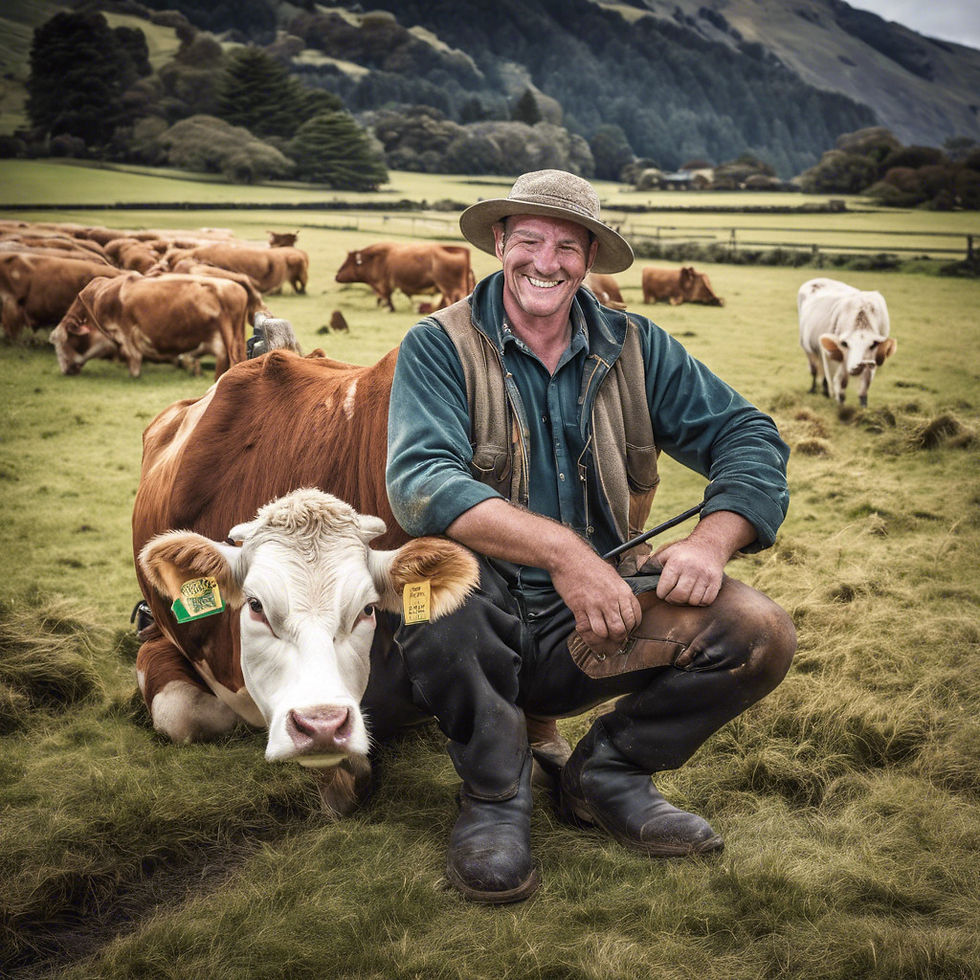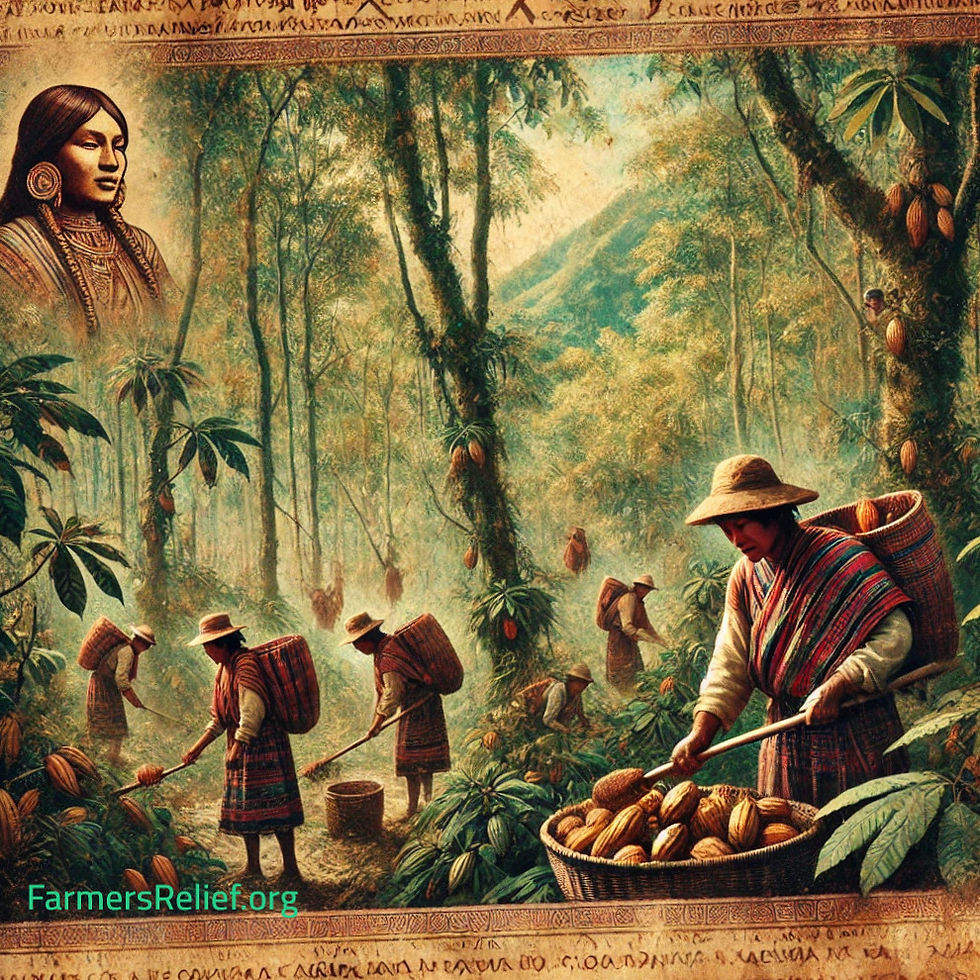The Happy Farmer: A Rare Breed
- Roman Gana

- Oct 12, 2024
- 3 min read
Updated: Dec 27, 2024
By Roman Gana
Tacloban, Leyte
October 11, 2024

Farming used to be a noble trade
It was passed down like a precious heirloom from father to son, mother to daughter. It was a life of sweat, calloused hands, and humble pride.
Today? Well, the landscape has changed, and so have the farmers. In some countries, farmers are smiling from ear to ear, living a peaceful life in harmony with nature. In others, they are drowning in debt, trapped in a system that only seems to squeeze them tighter with each passing season.
So where are farmers the happiest? And where does the land offer no solace, only despair?

A Glimpse of Paradise: Where Farmers Are Happy
In the misty hills of Denmark, farmers are practically whistling while they work. With generous government subsidies, high-tech farming practices, and a strong sense of community, Danish farmers are thriving. They’re not getting rich, but they live well—better than many.
The same can be said for Switzerland, where farmers enjoy robust support from the state, and farming is seen as a respected, almost elite profession. No wonder they’re content. And then there's New Zealand, a country whose farmers are hailed as world-class producers of wool, dairy, and meat. Their land is fertile, their livestock healthy, and their spirits, generally, are high. But here's the catch: even in these happier nations, farming is no easy ride.
The work is relentless, but at least they can sleep at night without worrying about the bank knocking at their door.

Down in the Depths: Where Farmers Struggle to Survive Now
We come to the darker side of the plow. Farmers in India are staring down the barrel of despair. Year after year, crop failures, heavy debts, and the unforgiving hand of climate change push them to the brink. Here, the soil gives life, and just as easily, it takes it away. In fact, India holds the tragic distinction of having the highest rate of farmer suicides in the world. Over 10,000 farmers take their own lives annually, their dreams of prosperity turning into nightmares of financial ruin. The question of whether the land can provide is replaced by the grim reality that, for many, it cannot.
In South Korea, it's not much better. The once-proud rural communities are aging, their younger members fleeing to cities for higher wages and less grueling work. Depression runs high among farmers here, where government support doesn’t quite reach deep enough, and the land no longer holds the same promise it once did.
The Philippines: A Struggle Against the Tide
In the Philippines, the story is a cocktail of hard work, little reward, and a system rigged against those who need help the most. Filipino farmers are the backbone of the nation, yet they earn next to nothing for their labor. The land is fertile, yes, but the pockets of the farmers? Empty. Feudal land ownership, unfair trade agreements, and rising costs of living make it nearly impossible for many farmers to make ends meet. Yet, despite the crushing weight of poverty, they toil on, clinging to hope. Is it worth it? For many, the answer is uncertain. They farm not for prosperity, but simply to survive.
Is It Worth Being a Farmer Today?
In the past, farming was hard, but there was an undeniable dignity in it. You worked the land, and the land worked for you. It was a simple equation, if not an easy one. Today, that balance is broken in many parts of the world. For every farmer in Denmark who sleeps soundly at night, there’s a farmer in India who is kept awake by the suffocating weight of debt.
For every New Zealander whose land produces with bounty, there’s a South Korean who wonders how long they can keep up the fight.
So, is it worth being a farmer today? Maybe in some corners of the world. But for too many, the noble profession has become a cruel joke, a life of endless labor that yields only misery.
Roman Gana
(Roman Gana is also the Editor in chief of The Leyte Herald)





Comments